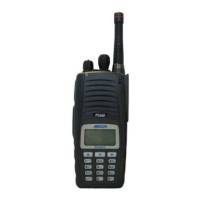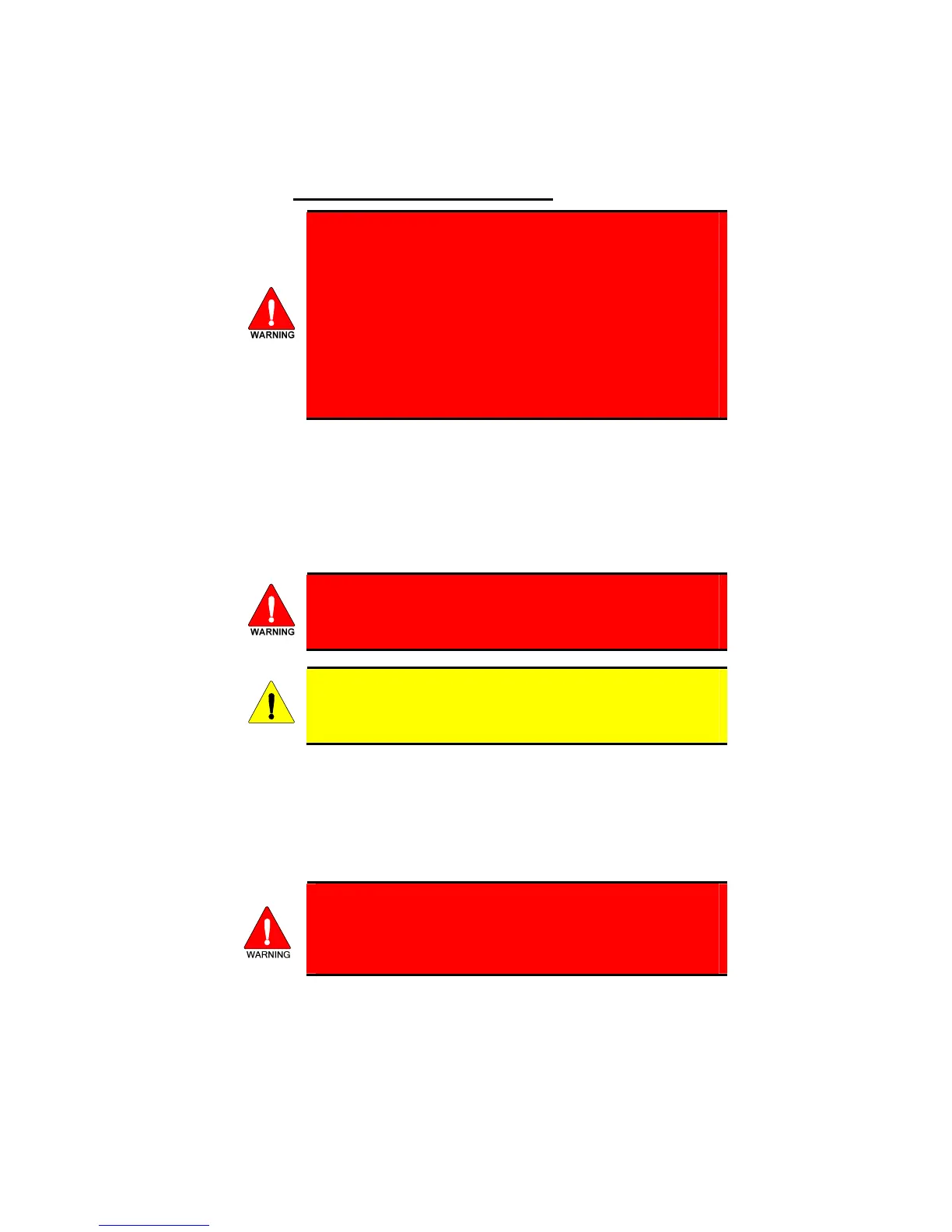3.1.5
Potentially Explosive Atmospheres
Areas with potentially explosive atmospheres are often, but not
always, clearly marked. These may be fuelling areas, such as gas
stations, fuel or chemical transfer or storage facilities, and areas
where the air contains chemicals or particles, such as grain, dust,
or metal powders.
Sparks in such areas could cause an explosion or fire resulting in
bodily injury or even death.
Turn OFF two-way radios when in any area with a potentially
explosive atmosphere. It is rare, but not impossible that a radio or
its accessories could generate sparks.
4 OPTIONS AND ACCESSORIES
A complete list of Options and Accessories approved for use with the P5400 portable
radio can be found online in the Operator’s Manual MM-012099-001 at www.macom-
wireless.com. Also reference the maintenance manual or M/A-COM’s Products and
Services Catalog for all available options and accessories, including those items that do
not adversely affect the RF energy exposure.
Always use M/A-COM authorized accessories (antennas, batteries,
belt clips, speaker/mics, etc). Use of unauthorized accessories may
cause the FCC Occupational/Controlled Exposure RF compliance
requirements to be exceeded.
CAUTION
Always use the correct options and accessories (battery, antenna,
speaker/mic, etc.) for the radio. Immersion rated options must be used
with an immersion rated radio. Intrinsically safe options must be used
with intrinsically safe radios.
5 BATTERIES
The P5400 series portable radios use rechargeable, recyclable Nickel Cadmium
(NiCd), Nickel Metal Hydride (NiMH), or Lithium Ion (Li Ion) batteries. Please follow
the directions below to maximize the useful life of each type of battery.
Do not disassemble or modify Lithium Ion battery packs. The
Lithium Ion battery packs are equipped with built-in safety and
protection features. Should these features be disabled or tampered
with in any way, the battery pack can leak acid, overheat, emit
smoke, burst, and/or, ignite.
7

